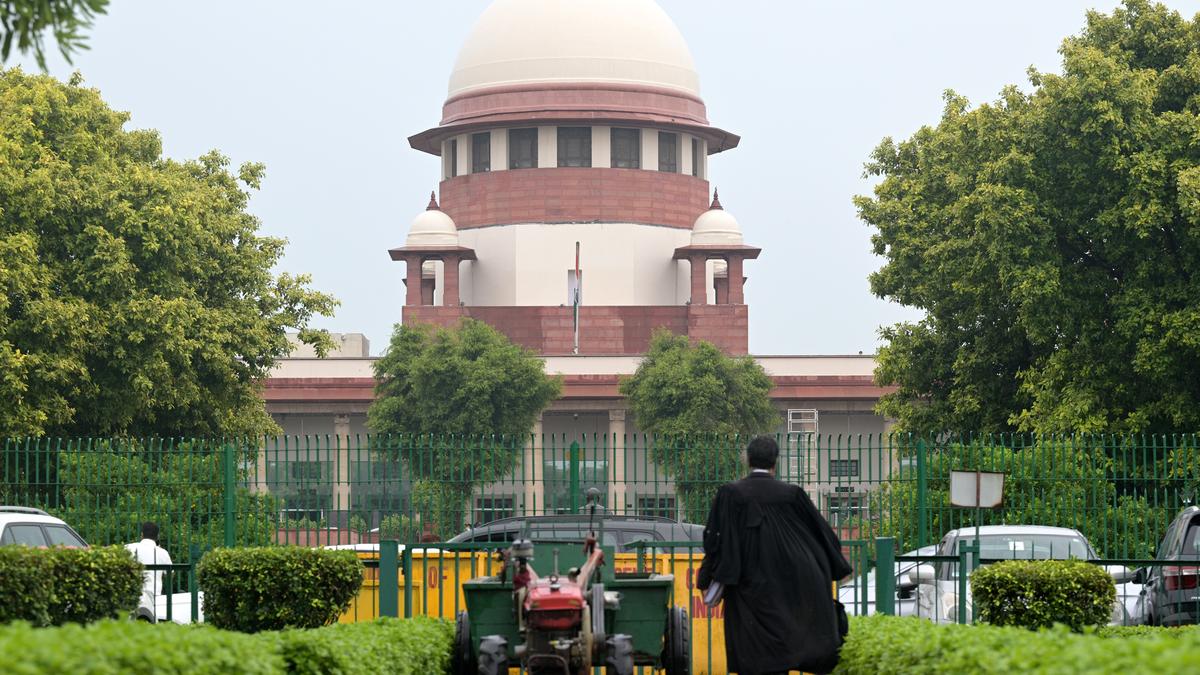Dalit Woman's Death in Sagar: Supreme Court Seeks Madhya Pradesh's Response
The tragic death of a 20-year-old Dalit woman, Anjana Ahirwar, in Sagar, Madhya Pradesh, has sent shockwaves across India. Her death, following the alleged murders of her brother and uncle, is not just a local tragedy; it's a chilling case that exposes deep-seated issues of caste violence, political influence, and the alleged failure of law enforcement. This case has ignited a firestorm of protest and demands for justice, making it a national focus.
A Chain of Alleged Murders and Atrocities
The sequence of events leading to Anjana's death is deeply disturbing. Her uncle was allegedly beaten to death, Anjana's 18-year-old brother was allegedly murdered for refusing to compromise on a molestation case Anjana had filed in 2019, and their mother was also allegedly stripped and beaten in August 2023. The family claims these attacks were not isolated incidents but a coordinated attempt to silence them. The tragic irony? Her uncle was a key witness in the investigation into her brother's death.
The Questionable Circumstances of Anjana's Death
Anjana died after allegedly falling from an ambulance transporting her uncle's body. While Sagar police initially ruled out foul play, this explanation has been met with skepticism and outright rejection from the family and the public. The timing, coupled with the alleged earlier atrocities against the family, paints a grim picture suggesting that Anjana may have also been a target of violence.
The Supreme Court Weighs In: Demand for CBI Investigation
The family's plea, filed in the Supreme Court, seeks a CBI or SIT investigation, arguing the local police are compromised and influenced by powerful individuals linked to the ruling party. The petition raises serious allegations against a BJP MLA and former state minister, Bhupendra Singh, accusing him of influencing witnesses and threatening the family. The petition argues that a fair investigation is impossible within the state given these alleged political pressures.
Allegations of Police Complicity and Witness Intimidation
Central to the family's accusations is the alleged complicity of the police and authorities in shielding the accused, who they believe are connected to powerful political figures. The petition suggests a larger criminal conspiracy involving members of the dominant community, even mentioning the former state Home Minister's alleged involvement. This points to systemic issues where powerful individuals might manipulate the legal system to avoid accountability.
Outrage and Political Fallout: A National Issue
Anjana’s death sparked outrage and protests, especially amongst the opposition Congress party. Many have targeted the BJP government over the alleged atrocities against Dalits. While the Madhya Pradesh Chief Minister, Mohan Yadav, has visited the family and pledged justice, the ongoing controversies and the family's distrust of the local investigation highlight deep-seated concerns. This incident has catapulted a local issue into a national conversation about caste-based violence, highlighting crucial aspects of the continuing challenges facing India in its fight for social justice.
The Need for a Transparent and Fair Investigation
The case's implications are far-reaching. It underscores the urgency for an impartial and thorough investigation into all the alleged crimes – including the deaths of Anjana's uncle and brother, as well as her alleged attempted murder. Anything short of a comprehensive, transparent, and unbiased probe will be unacceptable to the public.
Take Away Points
- Anjana Ahirwar’s death is shrouded in suspicion and has fueled major political backlash.
- The alleged complicity of the police and political influence has cast a long shadow of doubt over the initial investigations.
- The Supreme Court’s intervention demonstrates the seriousness of the allegations and highlights the demand for justice.
- The case exemplifies the persistent and pervasive challenges of caste-based violence in parts of India.
- It underlines the crucial need for unbiased investigations and the protection of witnesses facing threats.




